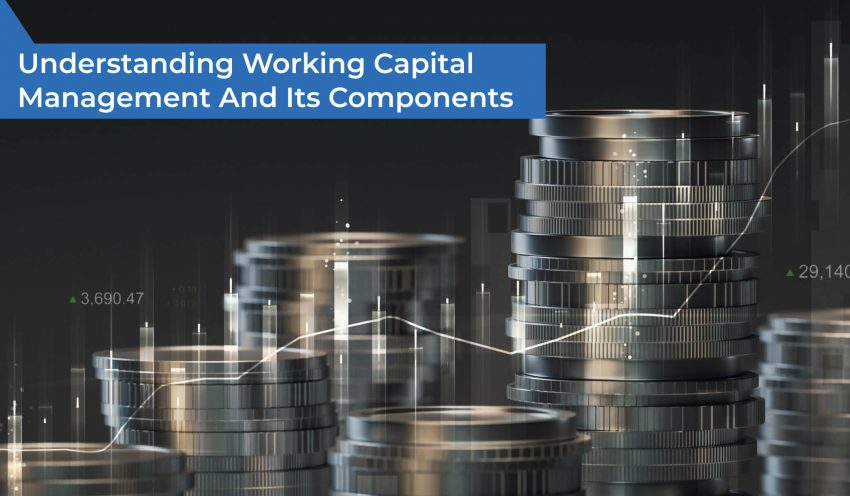Many of us have probably heard the accounting jargon “Working Capital Management”. But you may not have a clear understanding of the same. Worry not. In this blog, we’ll explain this concept in detail.
But before we get into it, let us first understand the concept of working capital. In simple terms, it is the capital that a business needs to function. It can be used for various purposes like buying fixed assets, paying employees, purchasing goods, etc.
Working capital must be maintained so that businesses can run their day-to-day operations. Examples of working capital include inventory, liquid cash, accounts payable, accounts receivables, etc.
In short, working capital helps a firm to estimate its financial position in a short term. If you want to find out your working capital on a given date, all you have to do is, fetch the balance sheet. The difference between the current assets and current liability indicates the business’s working capital.
Working Capital = Current Assets – Current Liabilities
There are 4 components of working capital that one needs to understand, which are:
1. Cash and Cash Equivalents
The cash and cash equivalents include
a) Cash at hand
b) Cash at the bank
c) Certificate of Deposits
d) Treasury Bills
e) Exchange Traded Funds
f) Others
2. Inventory
Inventory includes
a) Raw Materials
b) Finished Goods
c) Work-in-progress goods
3. Account Receivables
Account receivables include all the cash or cash equivalents that the business is entitled to receive. This includes:
a) Bills Receivables
b) Accrued Interest
c) Other outstanding receivables
4. Accounts Payables
Account payables include all the cash or cash equivalents that the business needs to pay. This includes:
a) Bills Payable
b) Unpaid Dividends
c) Tax Payment
d) Operational Costs
e) Other outstanding debts
Now, let us address the elephant in the room – working capital management. Working capital management helps businesses design and implement strategies to efficiently use their current assets and current liabilities. This helps companies to ensure that they have an adequate cash flow that helps them to operate on a daily basis and can meet their short-term liabilities or debt obligations.
But, why is working capital management important? Well, it is important for the following reasons:
1. Maintains liquidity for the firm
If an organization has high working capital, it means that they have good liquidity. And with good working capital management in place, attaining desired liquidity becomes simple.
Liquidity enables businesses to have a better ability to pay off their debt, which increases their financial credibility. Many suppliers and investors consider liquidity as an essential factor. Thus, working capital management puts a business in a better position in the eyes of its stakeholders.
2. Efficient use of Fixed Assets of the business
Businesses have fixed assets which are integral to their operation, but if working capital is low, the full potential of these assets cannot be met. Good working capital means a business has enough resources, such as raw materials and stock, to make use of their fixed assets to optimal effect. This increased productivity lowers costs and results in greater profitability for the business.
3. Business Expansion
If a business wishes to increase its present production capability to serve more customers, they definitely need to have good working capital. With a higher working capital, the business can deploy resources that can help in increasing its production capability. The increased capability enables the company to serve more customers. Good working capital management ensures that the business always has scope for expansion and enhances its ability to address a larger market.
To summarize, working capital is the fuel that runs a business daily. Working capital management helps to efficiently utilize this fuel and keeps the business running in the right direction at a lesser cost.
Sure, you would also love to develop a streamlined working capital management system for your business. It might seem a little difficult. But do not worry. We got your back. BFM (Business Finance Manager) can help you to keep a tab of your working capital and helps you to manage them efficiently as per your needs with its advanced business intelligence technology. You can handle your finances like a pro with BFM. If you wish to know more about how BFM can be helpful for your business, visit www.zikzuk.com to request a free demo today!
